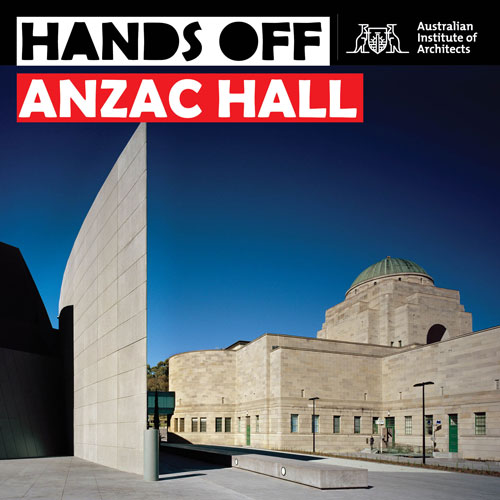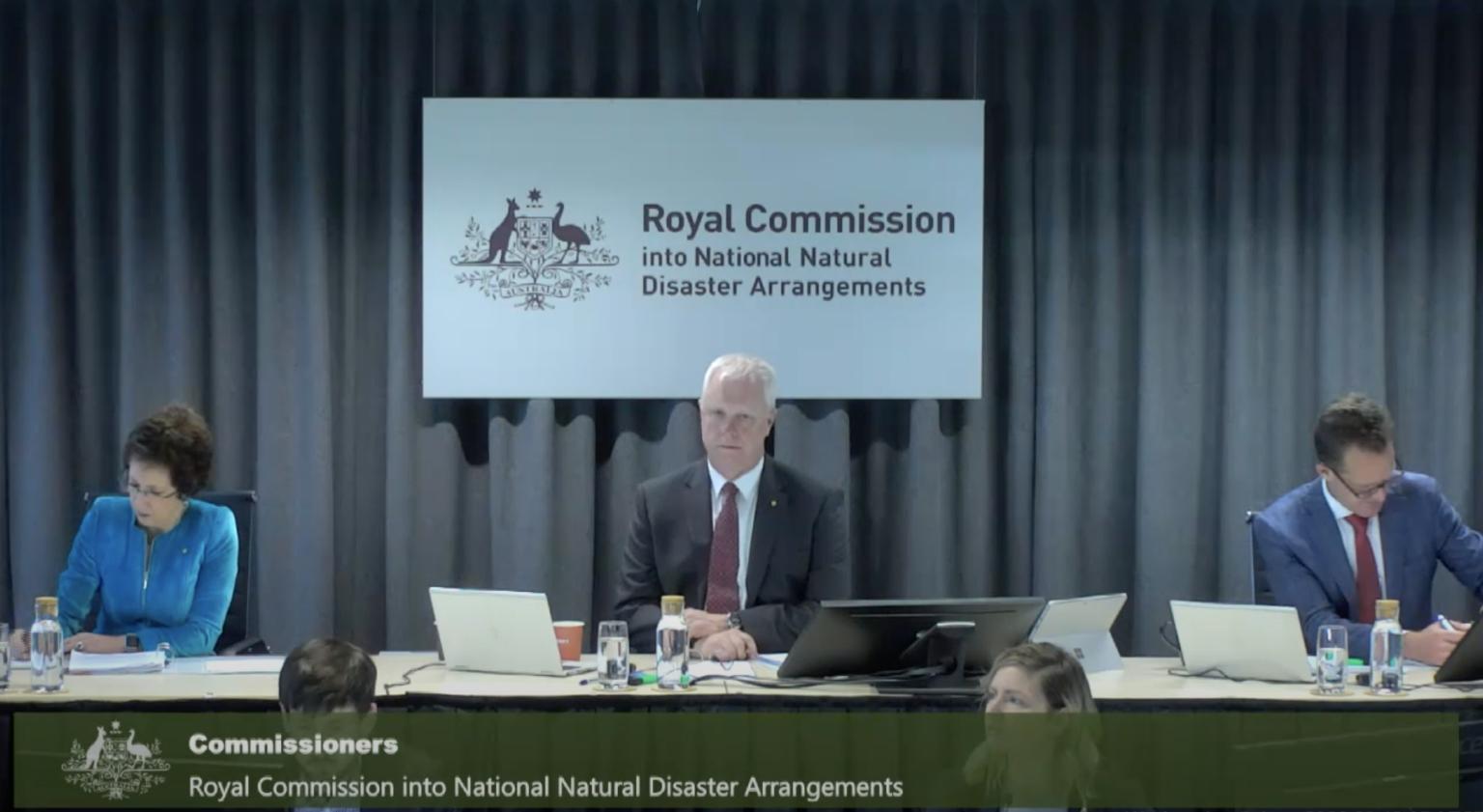Campaign Update: #Handsoffanzachall
Last week the Institute wrote to lower house MPs, copied to cabinet ministers and Labor’s front bench, to reaffirm our opposition to the demolition of Anzac Hall as part of the $498.7 million Australian War Memorial (AWM) Development Project. The AWM is, unquestionably, one of our nation’s most valued and important public institutions and it is of upmost concern to the Institute that due process has been ignored.
The letter and wider issue has received media coverage including the Sydney Morning Herald, Australian Financial Review, RiotACT, and ABC Radio and The Age.
The open letter to the House of Representatives outlined that while the Institute fully supports the Memorials purpose in commemorating the sacrifice of Australians who have died in war, changes to the project should be made to retain Anzac Hall and to ensure that over-development would not lead to the significant adverse loss of the heritage qualities that make the AWM nationally significant.

The Institute responds: National Registration Framework for Building Practitioners Discussion Paper
The Australian Building Codes Board has sought industry comment on a proposal to set up a registration framework for design and building practitioners. The Institute has welcomed the National Registration Framework for Building Practitioners (NRF) as a necessary enabler to ensure that all practitioners have the appropriate qualifications and competence to undertake work in the building sector.
The Institute has long held the view that all practitioners in the building industry must have the appropriate education, experience and competence to undertake their assigned activities. However, we believe the NRF, as currently proposed, will have unintended consequences and will result in poorer quality and a less safe outcome for the public – the end users of buildings.
The NRF must focus on the competency of practitioners rather than solely on education level and years of experience. Currently the levels of education and assessment of experience set out in the NRF are inappropriate with regard to the skills required to deliver safe buildings and buildings that comply with the NCC in all of its aspects.
A registration framework is a means to ensure that only those practitioners with the appropriate skills and competence deliver buildings that comply with the NCC. Each practitioner must be held accountable for the work that they undertake, and this framework should assist with accountability issues. It is vital that the NRF attribute the appropriate permitted work and not introduce a “lowest common denominator” approach.
2020 Review of the National Standard of Competency for Architects
The Architects Accreditation Council of Australia (AACA) commenced a project in January 2020 to review the National Standard of Competency for Architects (NSCA) with an Expert Reference Group providing professional advice to the project. The Terms of Reference for the Review focus on the extent to which the NSCA:
- broadly reflects the role of an architect across the diversity of modes of practice
- represents the needs of regulators and reflects current and emerging risks across the profession as a whole
- is fit for purpose as the benchmark for AACA assessment programs.
The Institute recently co-ordinated a submission in response to an Issues Paper released by the AACA to inform further consultation. Feedback received in this consultation phase, including the submission from the Institute will inform the drafting of revisions to the NSCA. Further consultations on the revised draft of the Standard are expected in October-December 2020.
Royal Commission into National Natural Disaster Arrangements
The Royal Commission into National Natural Disaster Arrangements was established in response to the extreme bushfire season over the last 12 months. The Commission is examining the coordination, preparedness for, response to and recovery from fire, as well as ways to improve resilience, adapt to the changing climate and mitigate the impact of natural disasters. The Royal Commission is expected to deliver a final report in October 2020.
Earlier this year, in our written response to the Royal Commission, the Institute provided key lessons from the bushfire season. Laying out 24 recommendations, our aim was to highlight the critical role of built environment professionals in improving the resilience and adaptation of Australian society to changing climatic conditions.
Following the submission, Mr Nigel Bell, a respected Institute member and practising architect, gave evidence to the Royal Commission on behalf of the Institute on 8 July 2020. Appearing alongside representatives from the Planning Institute, Bushfire Building Council and Property Council of Australia, Nigel outlined key recommendations for building design in fire prone areas. We are pleased to say that the recommendations made by the Institute in our earlier submission to the Royal Commission are being thoughtfully considered.
This appearance at the Royal Commission by Nigel Bell is a fantastic example of how the advocacy and policy engagement of the Institute with the Australian Government can be enhanced and supported through the professional expertise of members. Further updates on the outcomes of the Royal Commission will be provided when the final report is delivered.

